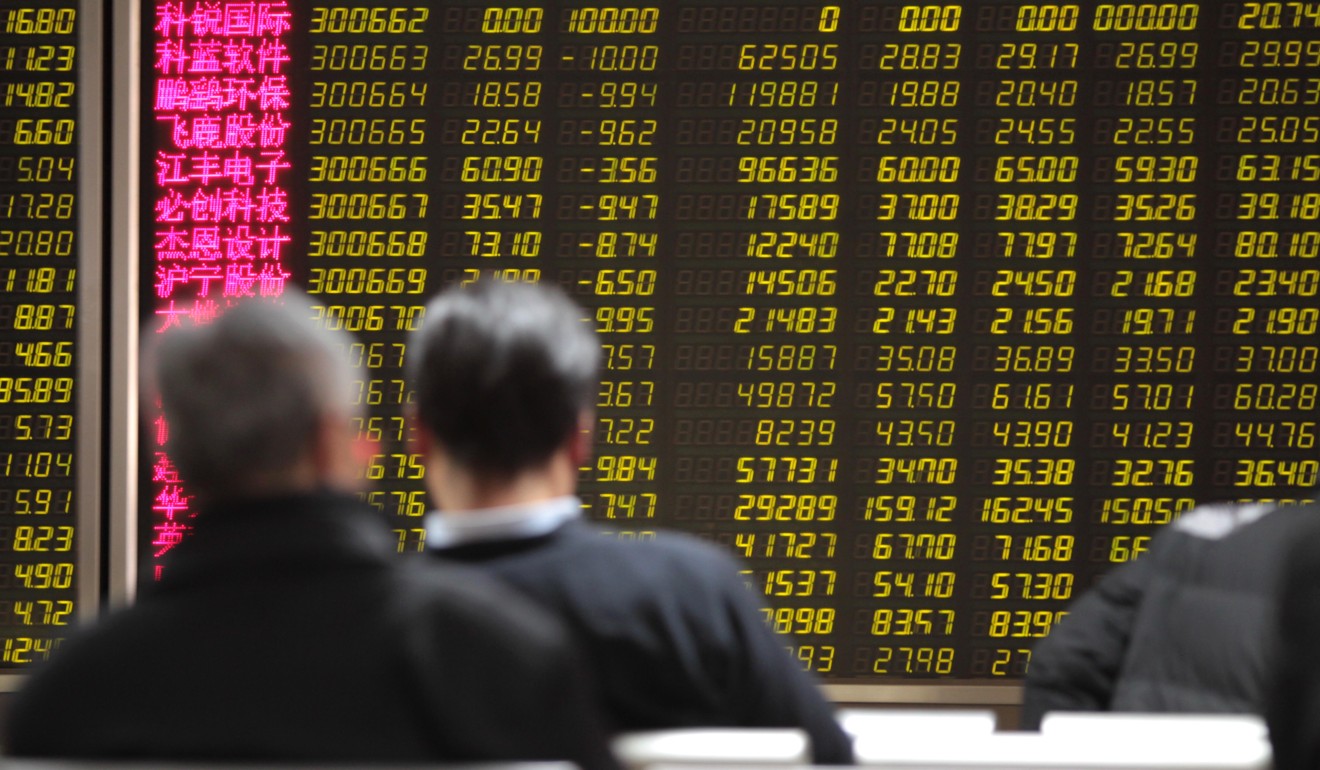
China’s new central bank chief shrugs off financial risks from trade war
Yi Gang tells forum in Beijing that banking, securities and insurance sectors are ‘fully capable of preventing and tackling’ any external shocks
China’s financial system will be able to withstand any external shocks stemming from a China-US trade war, the country’s new central bank chief said on Sunday.
Yi Gang, who was appointed governor of the People’s Bank of China last week, said the banking, securities and insurance sectors were “fully capable of preventing and tackling” external risks, news website Sina.com reported.
He was speaking after US President Donald Trump on Thursday decided to impose tariffs on US$60 billion of Chinese imports.
China retaliated with its own tariffs on US products, sending stock markets plunging on Friday in Hong Kong, Shanghai and Shenzhen. The Shanghai Composite Index fell 3.39 per cent while the CSI 300 – which tracks large caps listed in Shanghai and Shenzhen – shed 2.87 per cent. Hong Kong’s benchmark Hang Seng Index dropped 3.7 per cent.

But Yi downplayed the market reaction on Sunday, telling the China Development Forum in Beijing that the country knew how to handle risk.
“As long as we can get our own house in order, there will be a fairly good foundation for us to manage risks from external shocks, as well as the global impact,” Yi was quoted as saying.
Meanwhile, Yi told the forum that it was too early for Beijing to declare victory in its domestic war on financial risks because overall debt levels were still high and some of the country’s tycoons were still a problem.
“A few institutions are still engaging in financial businesses illegally, without proper licensing, and certain irregular financial activities are emerging in the guise of innovation or the internet,” according to the transcript of Yi’s speech carried by Sina.com.
“A few financial holding groups that have expanded aggressively ... are having serious problems with [company registration] fraud as well as improper related transactions that carry contagious risks across institutions, markets and business segments,” Yi said in the speech, his first since he took over from veteran central bank governor Zhou Xiaochuan.
Yi did not name any of the financial conglomerates.
The authorities started clipping the wings of China’s privately controlled financial groups after a stock market rout in 2015, and as it tried to curb unprecedented capital flight in 2016.
Dalian Wanda Group, a property and investment conglomerate owned by Wang Jianlin, and airline and property company HNA Group were also told by Beijing to sell off assets, the South China Morning Post reported this month.
And Xie Zhikun – a rags-to-riches entrepreneur with a conglomerate managing at least 1 trillion yuan – this month sold his stake in Zhongrong International Trust, a key financing platform for his business operations. Sources have told the Post that Xie was also instructed to perform this act of “self-rescue” by the authorities.
These and other cases are part of a sweeping crackdown on financial sector tycoons over the past two years, with many of them now drawing to a close – such as Anbang Insurance Group, which was taken over by the government and its former chairman Wu Xiaohui charged with economic crimes.

